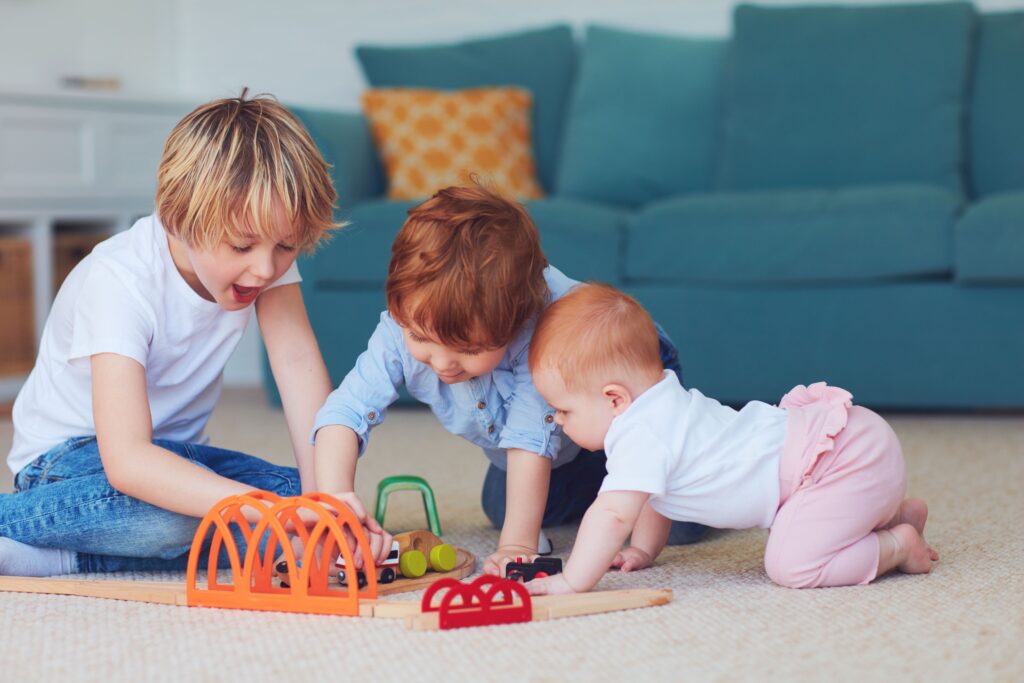Trauma affects children of all ages and can affect their body and brain development in the long-term.
Children experience trauma in many areas of life. The biggest childhood traumatic events are neglect, assault, loss, and abuse that start within families. A child’s relationship with their parents/primary caregivers plays a massive role in their sensory development. They need love, care and support from parents and caretakers for healthy emotional, physical, and cognitive development.
Other incidents, such as school and communal violence, natural disasters, bullying, refugee experiences or medical trauma, also cause trauma in children. These overwhelming experiences tend to haunt them in the form of new fears.
Young children lack an understanding of cause and effect, which makes them believe that their thoughts are real. Without help and support, their sense of safety gets shattered, and they may feel helpless.
Childhood Trauma Has a Significant Impact on the Overall Development of Children
Early childhood trauma can impair emotional and cognitive development of children in the long term. Childhood trauma impacts the development of the brain cortex, the part responsible for cognitive functions. Disruptions in the cortex development affect a child’s ability to regulate emotions, making them more vulnerable to developing long-term mental health issues. Additionally, trauma weakens children’s immune and nervous systems, posing health risks.
Childhood trauma will change how children view the world, especially going into adulthood. They may face difficulties trusting others, affecting their socioeconomic and personal life.
Traumatised children often face relationship problems in their adult lives. They may also have learning difficulties, and some may even engage in high-risk behaviours such as drug abuse and criminal activities.
It is impossible to shield children from dangerous events. Thus, equipping children with trauma management skills helps them to deal with trauma.
Signs of Childhood Trauma
Children often internalise or externalise stress reactions, leaving their trauma unresolved. Most mental health issues start before a child begins their teenage years.
Traumatised children face difficulty regulating, managing, and communicating their emotions. Unresolved childhood trauma can cause anxiety, depression, eating & mood disorders, and post-traumatic stress disorder.
Infants and young adults show varying trauma symptoms as they internalise their fears. Awareness of early childhood trauma is vital to prevent mental health issues. Some of the common symptoms of childhood trauma are as follows:
Traumatised infants (birth to 3 years old) may show these signs:
- Excessive crying or screaming
- Delay in verbal and language skills
- Issues with memory
- Aggressive behaviour and extreme temper
- Separation anxiety
- Sleep and eating disturbances
Young children suffering from trauma (3 to 6 years old) may show these signs:
- General fearfulness and developing intense new fears
- Face trouble learning or focusing in school
- Seek excessive attention through positive or negative behaviours
- Hyperactive, restless, and impulsive
- Poor relationship with peers and adults
- Physical symptoms such as frequent headaches or stomach aches
Suppressed childhood trauma can resurface anytime in their lifetime, resulting in aggressive behaviour— hence early intervention is indispensable for children.
Intervention Programs to Help Traumatised Children
Early intervention programs provide the right support to children. It helps improve their sensory development and helps prevent developing possible mental health issues in adulthood. It also equips parents with the right skills and strategies to help their children heal from trauma.
Early intervention programs such as play therapy, interplay, animal-assisted play therapy, filial therapy and family counselling help traumatised children. Children need role models to guide them and help them navigate their emotions. Through these programs, counsellors and therapists observe and identify children’s unresolved difficult emotions and help them deal with them to promote healing.
Contact our professionals at CoRe Kids Therapy to learn more about the benefits of early intervention programs. CoRe Kids Therapy is based in Moorabbin, in the South East Bayside part of Melbourne.

